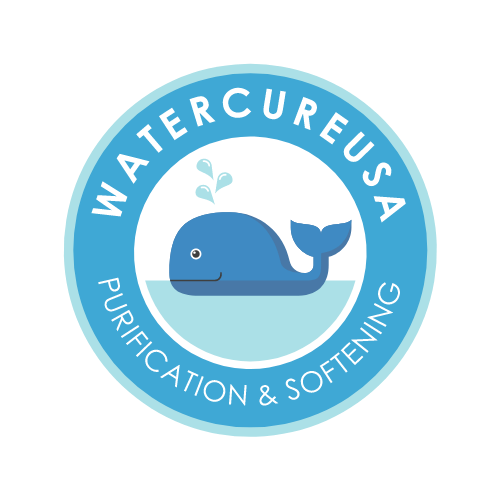We Look At The Causes & What You Can Do About It
We’ve all experienced that moment of walking into our home and catching a whiff of something unpleasant. When that smell resembles sewage, it’s not just embarrassing—it can signal serious problems that need immediate attention. As water quality specialists, we encounter this issue frequently and understand how distressing it can be for homeowners. The good news is that most sewage odors have identifiable causes and practical solutions.
If you’re interested in whole home water filtration to make sure your water is clean and healthy to drink, we can help! Send us a message online or call 716-946-3598!
Common Causes Of Sewage Smells In Your Home
- Dry P-Traps & Drain Issues:
One of the most frequent culprits behind sewage odors is dried-out P-traps. These curved sections of pipe under sinks, floor drains, and other fixtures are designed to hold water that creates a seal preventing sewer gases from entering your home. When these traps dry out—often in guest bathrooms, basement drains, or seldom-used sinks—that protective water barrier disappears. Without this seal, hydrogen sulfide and other foul-smelling gases can freely flow into your living space. We also see problems with damaged or improperly installed drain pipes. Cracked pipes, loose connections, or missing vent caps can create pathways for sewer gases to escape into your home. Even small cracks in underground sewer lines can allow gases to seep up through your foundation or basement floor.
- Water Heater Problems:
Your water heater can be a surprising source of sewage-like odors. When sulfate-reducing bacteria grow inside the tank, they produce hydrogen sulfide gas that creates that distinctive “rotten egg” smell we associate with sewage. This issue is particularly common in homes with well water, where naturally occurring sulfates provide food for these bacteria. The problem becomes especially noticeable when you run hot water, as the heat intensifies the odor. We frequently encounter this issue in water heaters that haven’t been properly maintained or in systems where the anode rod has deteriorated. The anode rod is designed to prevent corrosion, but when it breaks down, it can create conditions that promote bacterial growth.
- Sewer Line & Septic System Issues:
More serious sewage odors often originate from problems with your main sewer line or septic system. Blocked sewer lines can cause waste to back up, creating odors that permeate your home. Tree roots growing into sewer pipes, accumulated grease and debris, or structural damage to the lines can all lead to blockages and subsequent odor problems. For homes with septic systems, a full tank, damaged drain field, or failing pump can cause sewage odors both inside and outside your home. We’ve seen cases where improperly sealed septic tank lids allow gases to escape directly into the surrounding area, which can then find their way indoors through windows, doors, or ventilation systems.
Effective Solutions To Eliminate Sewage Odors
- Simple Maintenance & Prevention:
The easiest solution for many sewage odor problems involves basic maintenance that we can all handle. For dry P-traps, we simply need to run water in all drains regularly—even those we don’t use often. Pouring a gallon of water down floor drains, guest bathroom sinks, and basement drains every few weeks keeps those protective seals intact. We recommend checking all visible drain connections for loose fittings or obvious damage. Tightening connections and replacing worn gaskets can often eliminate minor gas leaks. Additionally, ensuring that all vent caps on your roof are properly installed and undamaged helps maintain proper pressure in your plumbing system. Regular cleaning of drains with enzyme-based cleaners can prevent the buildup of organic matter that feeds odor-causing bacteria. We avoid harsh chemical cleaners that can damage pipes and potentially make odor problems worse.
- Water Heater Treatment & Maintenance:
When your water heater is the source of sewage smells, we have several effective treatment options. Flushing the tank to remove sediment and bacteria buildup often resolves mild odor issues. For more persistent problems, we can treat the tank with a chlorine solution that kills sulfate-reducing bacteria. Replacing a deteriorated anode rod frequently eliminates the conditions that allow these bacteria to thrive. We’ve found that switching to a different type of anode rod—such as changing from magnesium to aluminum—can prevent future bacterial growth in some water systems. Installing a water filtration system designed to remove sulfates and treat bacterial contamination provides a long-term solution. These systems treat water before it enters your water heater, preventing the conditions that create odor problems.
- Professional Plumbing & System Repairs:
Some sewage odor problems require professional intervention that goes beyond basic maintenance. Damaged sewer lines need proper diagnosis and repair by experienced plumbers who can locate breaks, remove root intrusions, and replace damaged sections of pipe. Plumbers often use video inspection equipment to identify the exact location and nature of sewer line problems. This technology allows them to recommend targeted repairs rather than extensive excavation, saving both time and money. For septic system issues, professional pumping, drain field repair, or system component replacement may be necessary. Work with certified septic contractors to ensure these complex systems function properly and don’t create ongoing odor problems.
When To Call For Professional Help
While we can handle many odor issues ourselves, persistent or severe sewage smells warrant professional attention. If simple maintenance doesn’t resolve the problem within a few days, or if you notice additional symptoms like slow drains, gurgling sounds, or water backing up, it’s time to call for expert diagnosis.
We’re here to help identify the source of sewage odors and implement effective solutions that restore your home’s comfort and safety. Don’t let sewage smells disrupt your daily life—contact us for a thorough evaluation and professional treatment options.





